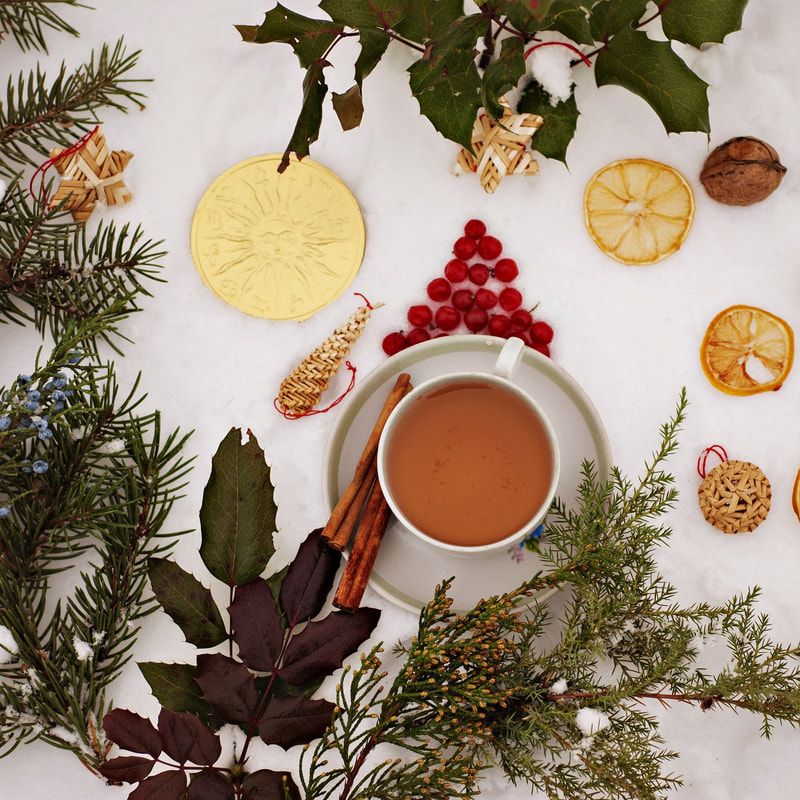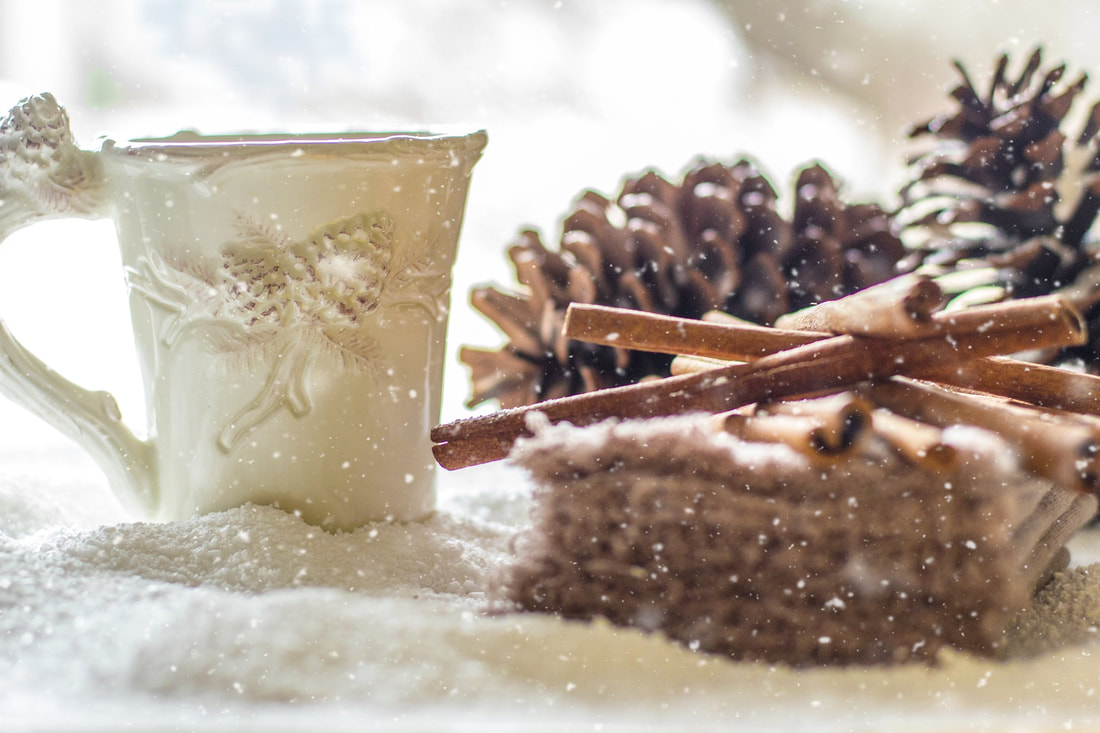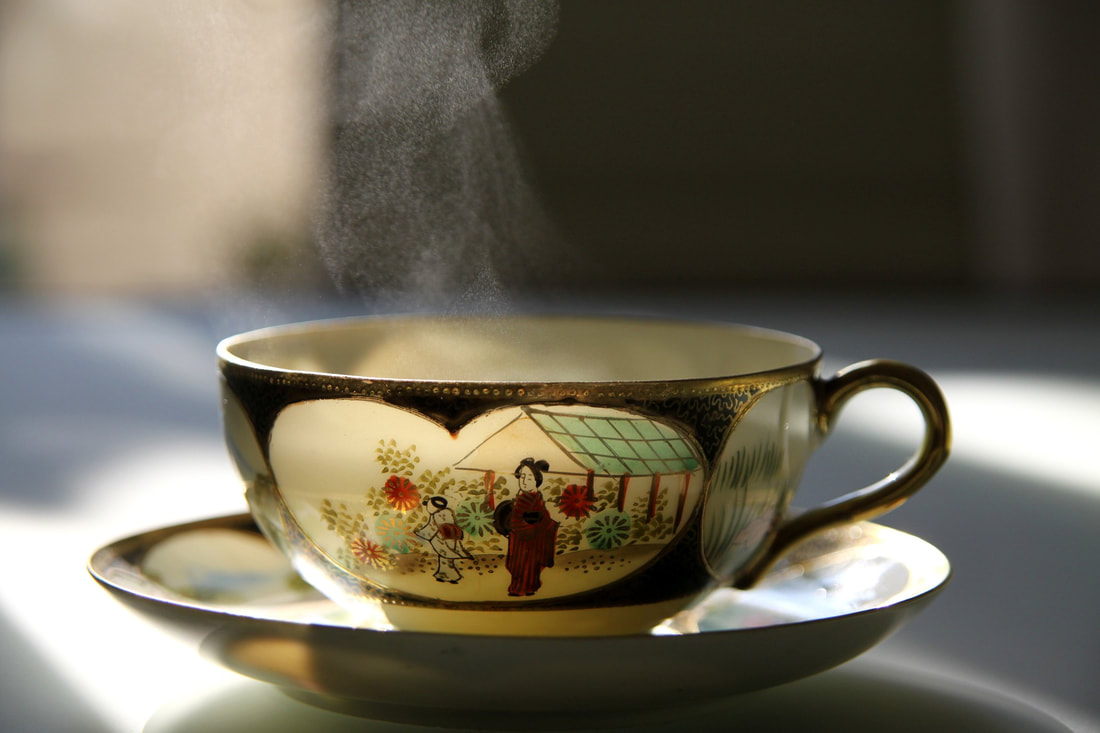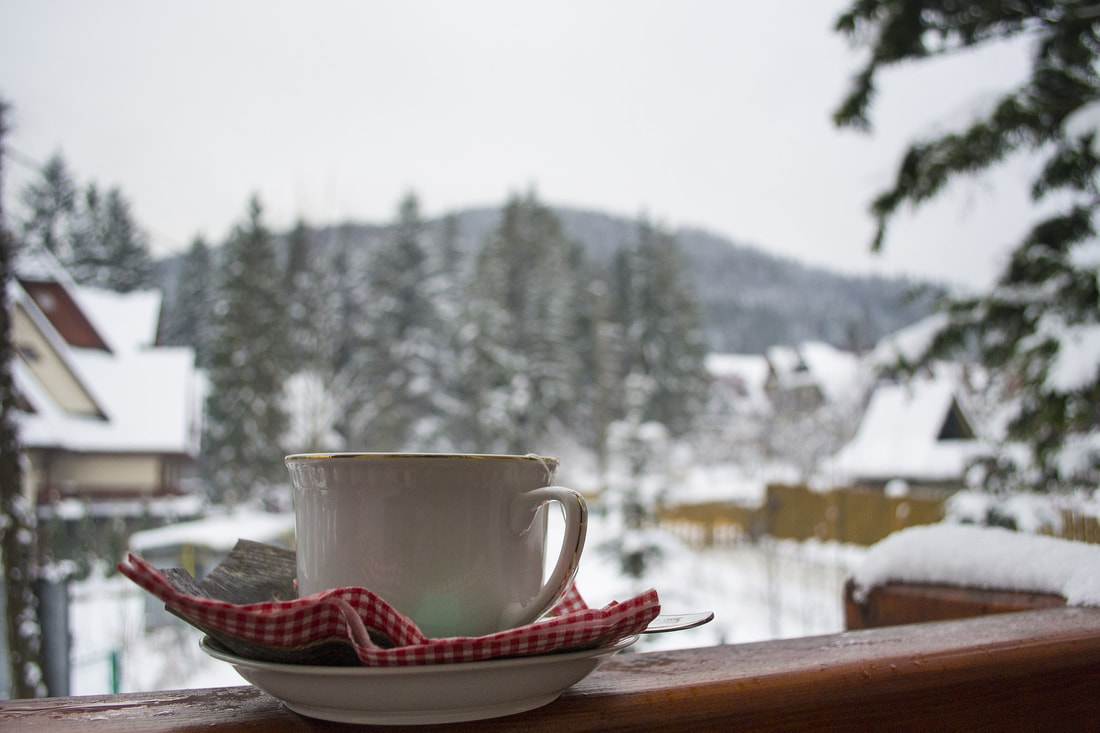|
Herbal teas have historically been used during the winter months not only to maintain health but also treat winter ailments. The warming properties of these teas make them invaluable during colder months. Often times people feel winter is a time for hibernation! Although winter is a good time for quiet time and self reflection it can also be an amazing time to enjoy the outdoors and all the activities we have only during these months. With a few special herbs we should be confident in our bodies ability to adapt to colder weather and enjoy the wonders of winter. Cinnamon Bark and Twigs Rou Gui/gui zhi, otherwise know in Traditional Chinese Medicine. Cinnamomum Cinnamon is a warm herb traveling to the Lungs, Spleen and Stomach channel. Cinnamon has many health benefits. It is an herb high in antioxidants which helps protect the body against free radicals and oxidative stress. It is also a natural anti-inflammatory herb. Inflammation in the body causes pain and swelling in the body. Both the bark and twigs are used in traditional chinese medicine. Traditionally rou gui has been used for arthritis and inflammation. It is warming for the kidneys and has been used for asthma and menopausal symptoms. The bark, "rou gui" is used mainly for digestive upset working with the spleen and stomach channels. The twigs, "Gui zhi "are used to warm the channels thereby warming the hands and feet. This is an excellent her for cold conditions as well as protecting against illness in the cold winter months. Clove Flower Buds Ding Xiang in traditional Chinese medicine. syzygium aromaticum. Cloves have historically been used throughout Asia, India, Indonesia and Pakistan. Clove is a warm and pungent herb traveling to the Spleen, stomach and Kidney channels . Clove is an important herb in aiding digestion. It can be used to increase appetite, hiccoughs, otherwise known as rebellious Qi in Chinese medicine. It is also used for nausea and diarrhrea as well. Clove has natural antibacterial properties making it useful in gum disease such as gingivitis and periodontal disease. It also has pain killing properties as well making it useful applied topically as an analgesic. most often this is done with an oil, the essential oil of clove should always be mixed with a carrier oil, such as olive oil if applied directly. Studies done at Oxford University show anticancer qualities of Clove make it promising in Lung cancer and cervical cancer as well. The chemical constituent, oleanolic acid present in clove is what makes it effective in anticancer properties in Lung cancer. Fun fact Clove buds have traditionally been used in India mixed with Rock salt and added to milk for Headache. Ginger
Fresh and Dried Root Zingiber officinalis Sheng Jiang is the fresh root. Gan jiang is the dried root. In traditional chinese medicine the fresh root is used for colds and flus to promote sweating. Ginger is traveling to the Stomach and Lung Channels. Ginger is high in vitamin C and Magnesium. It improves digestion and aids in the absorption of food as well. it is restoring the yang in the body and has been used for century's very successfully for nausea related to pregnancy. A little ginger goes a long way as well on those long car rides when kids get motion sickness. try some dried ginger candy as a quick remedy. GanJinag is also natural anti-inflammatory. This is very useful in those cold winter months when joints tend to get more stiff and painful. Ginger will improve your overall circulation by warming the channels in the body. It has also been studied that Ginger may help increase one's resistance to the cold with as little as 8 oz of ginger tea a day. It has also been shown to shorten the recovery of frostbite in winter. So drink up and enjoy all the winter has to offer.
0 Comments
Leave a Reply. |
Archives
July 2024
Categories |





 RSS Feed
RSS Feed